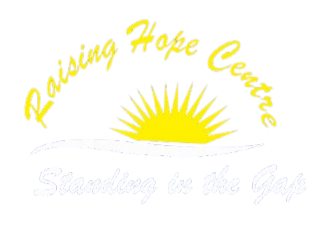Health and Wellbeing
Gender-Based Violence (GBV) program at Raising Hope
Centre could play a vital role in supporting survivors, raising awareness, and advocating for long-term solutions. Below is a proposed structure for a comprehensive GBV program:
1. Survivor Support Services
- Counseling and Psychological Support: Provide one-on-one counseling sessions with trained professionals to help survivors heal from trauma, anxiety, depression, and other mental health challenges linked to GBV.
- Legal Assistance: Offer access to legal support to help survivors navigate the legal system, including assistance with reporting violence, obtaining protection orders, and pursuing justice.
- Safe Shelter and Emergency Support: Establish safe spaces or emergency housing for individuals fleeing violent situations, along with food, clothing, and other immediate needs.
- Health Services: Ensure access to medical care for survivors, including trauma care, sexual and reproductive health services, and referrals to clinics for ongoing health support.
2. Prevention and Awareness Campaigns
- Community Education: Conduct workshops and community outreach programs to educate about the causes, impacts, and prevention of GBV, especially in vulnerable communities. This can include youth and community leader training to promote healthy relationships, respect for human rights, and gender equality.
- School Programs: Implement educational programs in schools to raise awareness among children and young adults about GBV, respectful behavior, and the importance of consent.
- Public Awareness Campaigns: Organize media campaigns, social media outreach, and public events to spread awareness, reduce stigma, and encourage reporting of GBV incidents.
3. Support Groups and Empowerment Initiatives
- Support Groups for Survivors: Create peer support groups where survivors can share their experiences, heal together, and learn coping strategies in a safe and supportive environment.
- Economic Empowerment: Provide vocational training and skill-building programs to help survivors gain economic independence, reducing their vulnerability to future violence and improving their livelihoods.
- Advocacy for Women’s Rights: Organize advocacy and lobbying efforts aimed at influencing policy changes that protect survivors of GBV and promote gender equality, both within local communities and at national levels.
4. Training and Capacity Building
- Capacity Building for Professionals: Offer training programs for healthcare providers, law enforcement, and social workers to equip them with the skills to respond effectively to GBV cases in a compassionate and supportive manner.
- Community Leaders and Advocates: Provide training for community leaders, religious figures, and local influencers on how to address GBV, intervene in cases, and offer guidance and support to survivors.

5. Monitoring and Data Collection
- Data and Reporting Systems: Establish clear reporting mechanisms for survivors of GBV to ensure that incidents are documented and can inform future prevention strategies. Data collection will also help assess the effectiveness of the GBV program and identify areas for improvement.
- Collaboration with Other NGOs: Partner with other organizations working on GBV issues to exchange knowledge, share resources, and collaborate on larger advocacy efforts.
6. Helpline and Crisis Support
- 24/7 Helpline: +254705248179 call or text for immediate support, advice, and referrals for survivors in distress. This service help individuals in crisis connect to resources, emergency shelters, and counseling services.
By implementing a comprehensive GBV program, Raising Hope Centre provide essential support to survivors, educate communities, and contribute to long-term cultural and social change that reduces the occurrence of gender-based violence. These approaches not only offer immediate relief to survivors but also foster an environment that promotes safety, equality, and justice.

